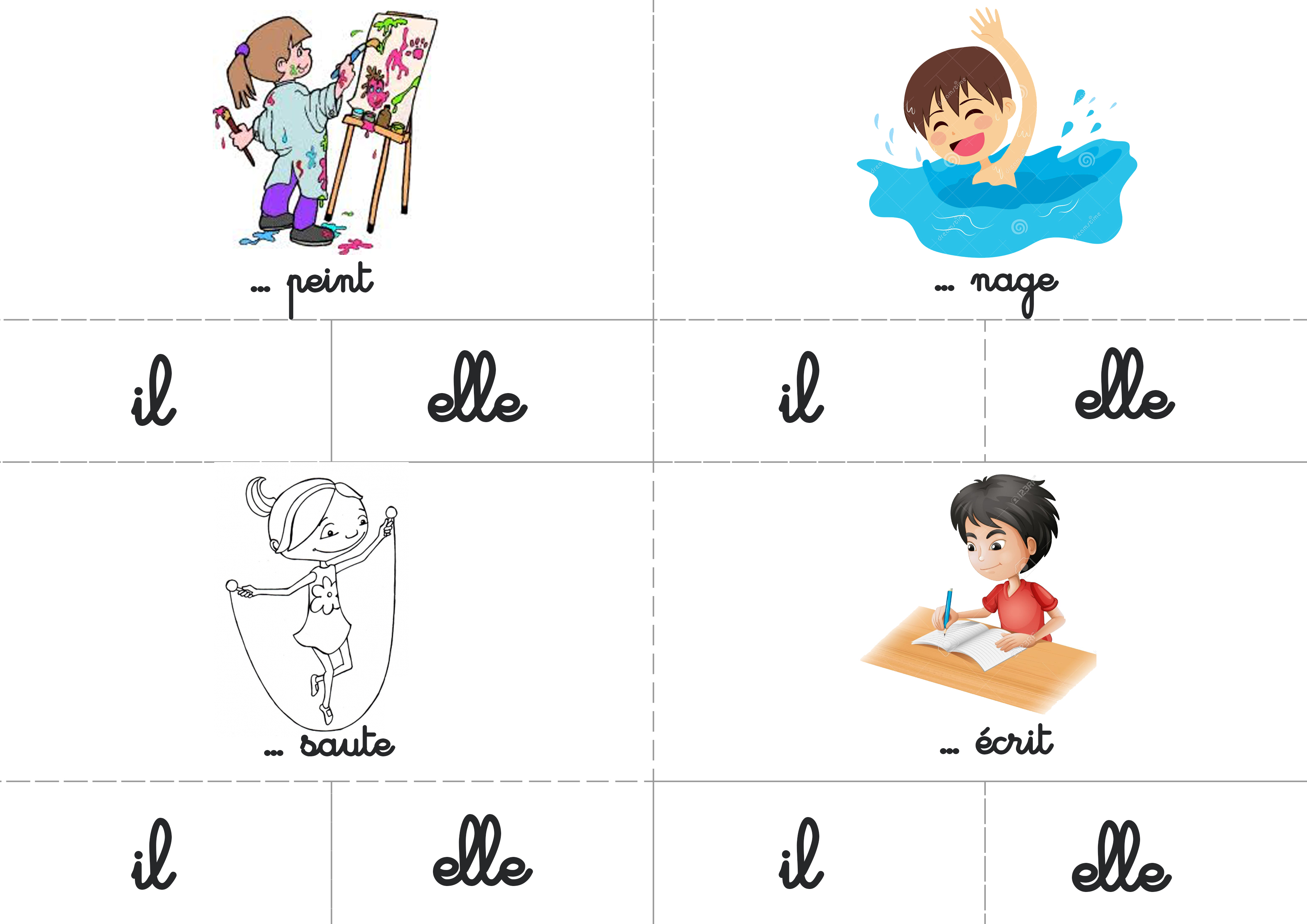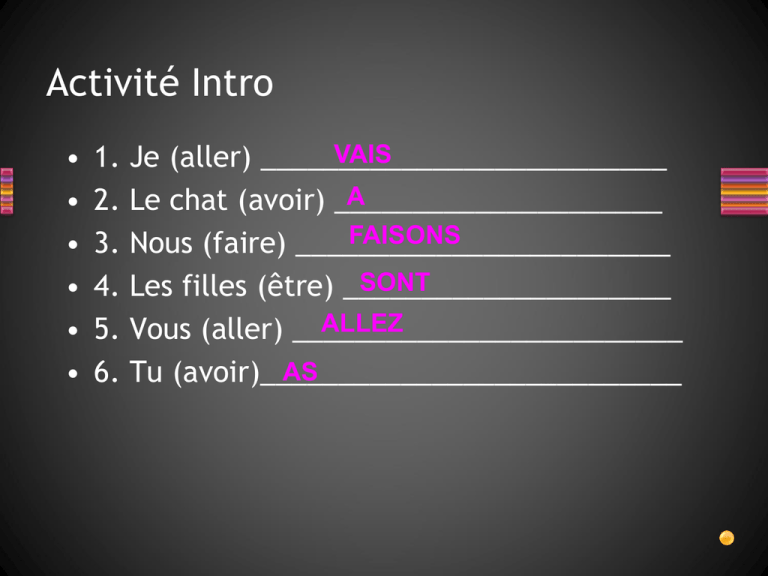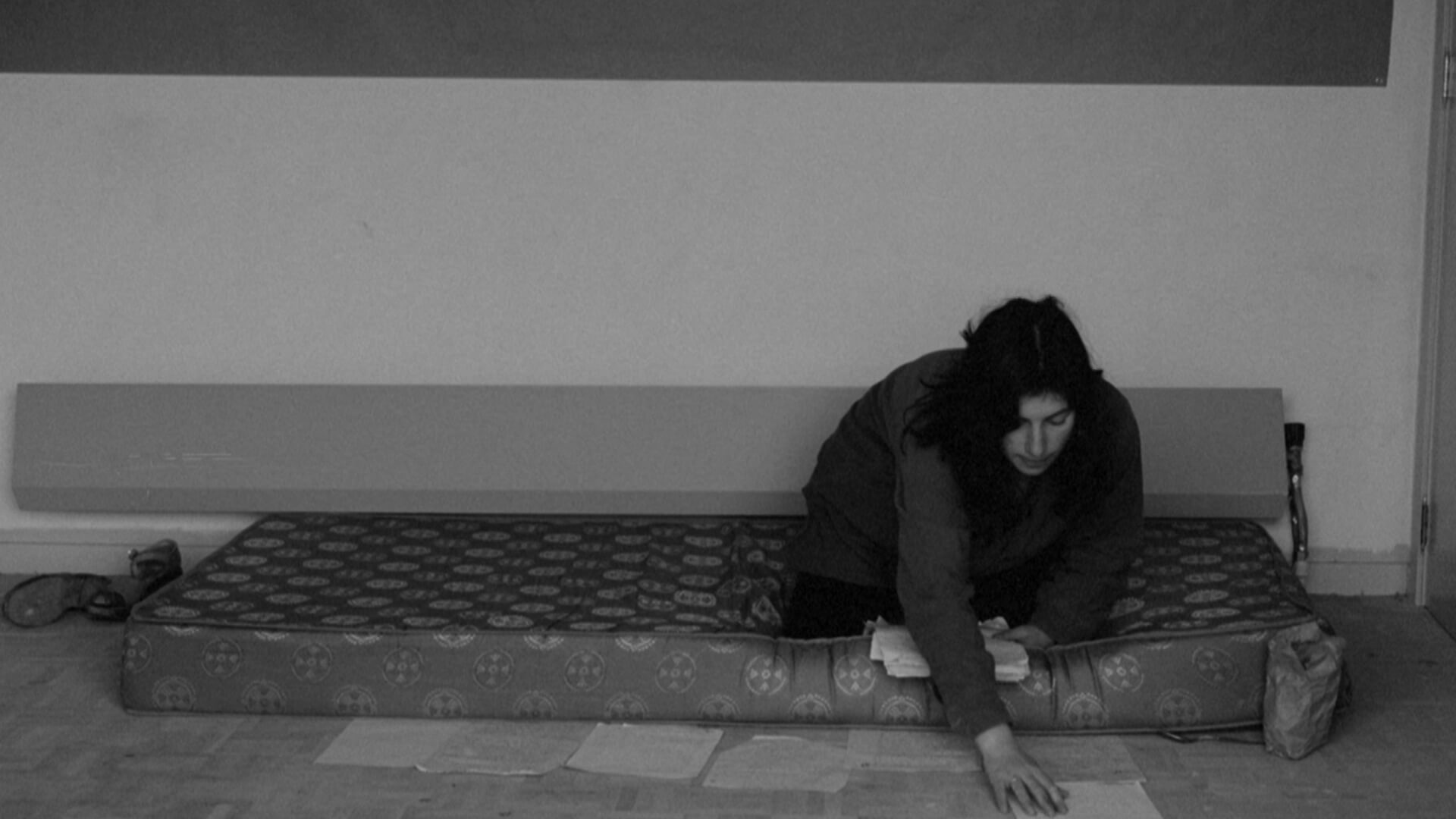
Misfortunes of Imaginary Beings Je Tu Il Elle (Chantal Akerman, 1974)
French French A1 French Pronouns Il/Elle versus Ils/Elles [Explanation and 9 Examples] Sam Denishin October 17, 2020 In this French grammar lesson, you will learn about il/elle versus ils/elles. In this lesson you will learn about: what the subject pronouns are in French what il means what elle means what ils means what elles means

Je tu il elle KANAL — Centre Pompidou — Brussels
- La personne, la chose dont on parle ( il, elle) ou les personnes, les choses dont on parle ( ils, elles ). 1. Je parle de moi J'utilise les pronoms : je, me et moi (1 re pers. sing.). Exemple : Je me rends à l'école. 2. Je parle directement à quelqu'un Je parle de toi, j'utilise les pronoms tu, te et toi (2 e pers. sing.).

il ou elle Les activités de maman
il elle on - French verb conjugation être avoir aller faire dire pouvoir vouloir savoir voir devoir venir parler prendre croire aimer falloir passer.

The monotony of modern life in Je Tu Il Elle The Hot Pink Pen
1. On = 3rd person singular verb ("il"verb form) The first thing to understand when it comes to "on", is that no matter its meaning, "on" will ALWAYS take a 3rd person singular verb form, like "il" and "elle". On doit, on a, on peut. We must, we have, we can. 2. On = one, people (you) This is the old explanation for "on".

Je Tu Il Elle Shelbymoring PosterSpy
Agreement of the participe passé. For some verbs, the participe passé has to agree in gender and number with either the subject or the object of the sentence. This agreement is necessary in the following situations: When a verb takes être as an auxiliary, the participle agrees in gender and number with the subject. Example: Il est all é dans son bureau. He went to his office.

Je tu il elle « Fondation Chantal Akerman
When do you use the French subject pronouns 'il/elle', 'ils/elles' and 'on'? - Easy Learning Grammar French In English we generally refer to things (such as table, book, car) only as it. In French, il (meaning he, it) and elle (meaning she, it) are used to talk about a thing, as well as about a person or an animal.

Il ou elle film 2017 AlloCiné
il/elle. écoute. nous. écoutons. vous. écoutez. ils/elles. écoutent. For -ger ending verbs, the e remains in the nous form. Nous mangeons. We eat. Nous partageons. We share. Verbs of this type. aimer: to like to love: format_list_bulleted commencer: to begin : format_list_bulleted changer

IL/ELLE
In addition to "he" and "she," il and elle mean "it" when they replace a noun of that gender, so le livre (the book) becomes il and la pomme (the apple) becomes elle. Ils is used for men, masculine nouns, and mixed gender groups - it is the default when referring to plural groups. Elles can be used only for a group of women and/or feminine nouns.

Je, tu, il, elle Cinema Public Cinema Public
Answer: What is happening. "What" is the subject (This one was trickier, wasn't it?) French Subject Pronouns Replacing One Person In French, the list of singular subject pronouns is: Je (or j' + vowel or h, it's called an elision) = I

Je tu il elle (1975) The Criterion Collection
'vous' is used in formal situations when talking to one person or in informal situations when talking to two people or more. ils = they 'ils' is used when talking about a group of boys/men or a mixed group. elles = they 'elles' is used exclusively when talking about a group of girls/women. Conjugation

Rewatching the Queer Canon Chantal Akerman’s ‘Je, tu, il, elle’ IndieWire
Updated: May 13, 2022 The list of French subject pronouns is je (j'), tu, il, elle, on, nous, vous, ils, elles. OK, but what does it mean? Table of Contents What is a subject? What is a Pronoun? 6 French Subject Pronouns - Singular No "It" Subject Pronoun in French 4 French Subject Pronouns - Plural What is a subject?

Je Tu Il Elle (1974)
Il/elle/on (he, she, one) Il means he, elle means she and on can me "one" or we. This line is called the "third-person singular." Here are some examples of il and elle. C'est Marie.

Je, tu, il, elle Cinema Public Cinema Public
Ils means they (for masculine or mixed plural nouns) Jean et Paul vont au cinéma. - Ils vont au cinéma. Jean and Paul are going to the cinema. - They are going to the cinema. Elles means they or them (when every one of the group are female or feminine nouns) Les fleurs sont jolies. - Elles sont jolies. The flowers are pretty. - They are pretty.

Je Tu Il Elle (1974)
il/elle: eut eu: nous: eûmes eu: vous: eûtes eu: ils/elles: eurent eu: Pronounce these verb forms. Various forms of the verb avoir are among the most commonly occurring French verb forms. The verb avoir is also one of a few common but highly irregular French verbs: It has more present tense forms than other verbs;

Je Tu Il Elle Archives Home of the Alternative Movie Poster AMP
il/elle/on- what does on mean and how to use it As far as I understand 'On' means they, you and one when you aren't referring to someone in particular,but rather an idea of someone. Is this right? I was looking up basic verb conjugation. I am really confused because for some verbs they listed the pronouns for he,she, it as — il/ elle/ on.

Il, Elle, Ils, Elles Apprendre le français Learn french, French lessons, French expressions
So, to conjugate regarder we just attach the same endings as parler. je regard e. tu regard es. il, elle regard e. nous regard ons. vous regard ez. ils, elles regard ent. Example of a French regular -er verb with example sentences. The table below shows several common regular -er verbs in the present tense: